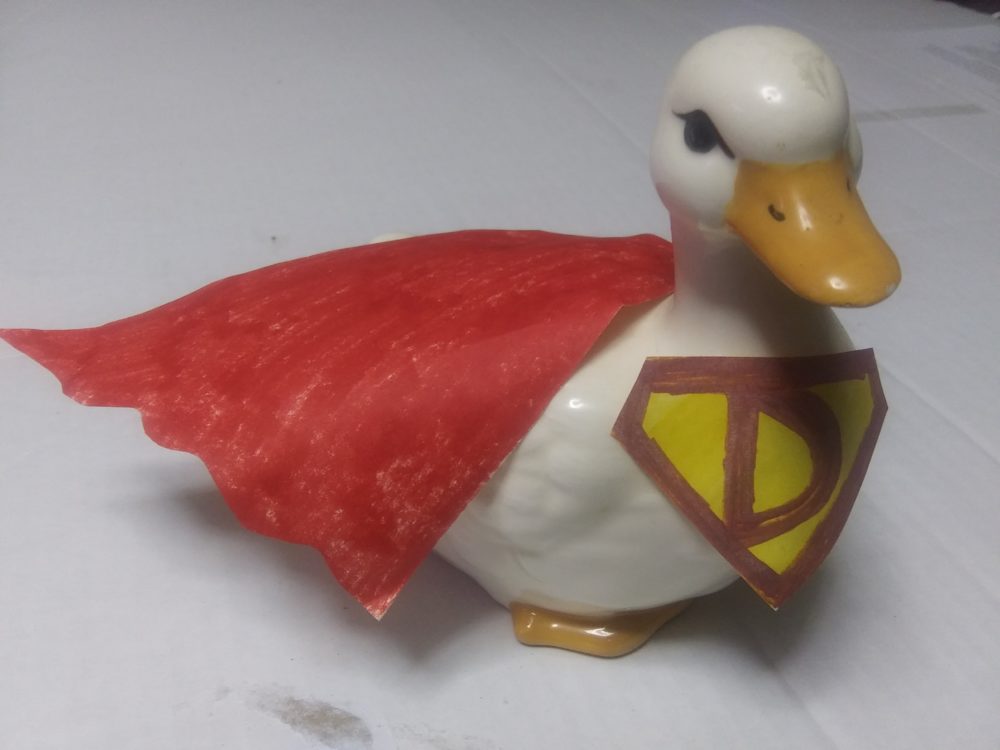Any regular person can be a hero

Heroes don’t need to wear capes and have powers.
Heroism is a word that I think many people know the definition of but are unsure of the meaning. Heroism, as defined by Webster’s dictionary, is “behavior showing great courage, usually as a noble act.”
Courage can depend on someone’s interpretation of the situation around them and the decision to do what is right as also determined by the situation.
When I was six years old, I almost drowned in a lake. I had jumped off the dock overlooking the fact that the water was deeper than I had anticipated and that I could not swim well.
Luckily, I was rescued by a passerby and I told her immediately, “I owe you my life.”
It sounded like a cool thing to say to someone, and, looking back on it, I can say that it must have sounded cool to hear by the person who saved my life.
Quite recently, I was late to class but arrived in time to see a video presentation regarding the American psychologist, Professor Philip Zimbardo—the orchestrator of the Stanford Prison Experiment. If you haven’t heard of Zimbardo, have you even been to a psychology class? (I say this because this is in fact the ninth time I have heard of the Stanford Prison Experiment within a college class).
For those who don’t know, it was an experiment in which a group of college students was assigned one of two positions to play in an experiment: prison guard or prisoner. The students who played “prisoners” were treated unfairly and often abused mentally and verbally by those who played the part of “prison guard” and fell into their roles too easily.
Zimbardo’s then-girlfriend (before marrying her) stopped by and realized what was going on, urging Zimbardo to terminate the experiment as it was getting out of hand. If going strictly by the above definition (as well as being plainly obvious), she deserves hero status by pointing out what was wrong and encouraging its discontinuation.
However, Zimbardo also deserves hero credit as he was the one who had to put aside his biases and ambitions to serve the greater good.
And before you judge him too harshly, I am certain from my research that no one feels more regretful about the results of the experiment than Zimbardo. It is one thing to point out the errors of another and urge them to stop, but it is a totally different thing to be at fault and admit to your own demons.
As the lecture video continued, Zimbardo spoke of heroism as an action anyone can do, and in most instances, something anyone should do. A hero can be anybody who simply sees something evil and says, “No, I’m not going to be a part of that,” or see something good and says, “How can I help?”
Today, our media is filled with fictional superheroes and super-powered beings who are more well-liked for their powers instead of their morality or their bravery in standing up for the greater good. Take just one hero, for example, the Hulk; people are more fascinated with him smashing buildings than with his internal struggle to contain his tendency to be a monster driven by rage.
A hero does not have to save a life physically but needs to do something that everyone else can and in some cases should do. This made me start to think about my life.
Returning to my first point, I owe my life to my parents. They did not have to give me life, but they did, as have yours. Have you thanked your parents for being brave in their own lives, filled with responsibilities and obligation to make time for you? Have you thanked them for bringing you into existence and helping you live your life?
“I owe you my life,” is a cool thing to tell someone, but a far better thing to hear and hopefully I can hear someone say that to me.
Now the decision lies with you—be brave and do what you know to be right in your life—influencing others as you do. That would make you a hero, according to the dictionary.
